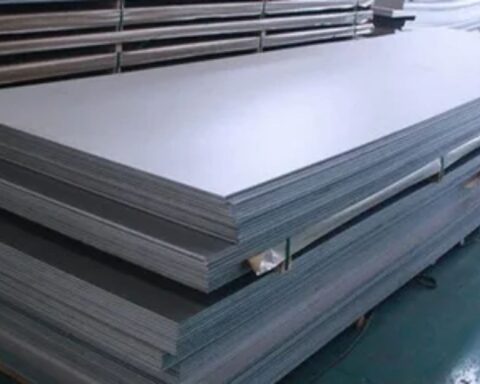Solar power is an innovative and sustainable solution for generating electricity by harnessing the energy from the sun. As the world moves towards cleaner and greener energy alternatives, solar power has gained popularity due to its environmental benefits and cost savings. Solar panels gold coast offer homeowners a reliable and efficient way to reduce their electricity bills and minimize their carbon footprint.
But how exactly does solar power work? In this article, we will explore the fundamentals of solar energy, the components of a solar power system, and the process that turns sunlight into usable electricity. By understanding how solar energy works, you can better appreciate its benefits and how it can power your home efficiently.
The Science Behind Solar Power
Solar power works based on a fundamental scientific principle called the photovoltaic effect. This is the process by which sunlight is converted into electricity using semiconductor materials, typically silicon. When sunlight strikes a material like silicon, it excites electrons, creating an electric current.
The core components involved in solar energy conversion are solar panels and solar cells. Here’s how the process works step by step:
1. Solar Panels: The Basic Building Blocks
Solar panels are made up of many smaller units known as solar cells. These cells are typically made of silicon, which is a semiconductor. Solar panels are designed to absorb sunlight and convert it into electricity through the photovoltaic effect.
When sunlight hits the solar cells, it energizes the electrons in the material, causing them to move. This movement creates an electric current that can be harnessed and used to power appliances, lights, and other electrical devices in your home.
Solar panels are often classified into three main types:
- Monocrystalline Solar Panels: Known for their high efficiency and sleek appearance, these panels are made from a single crystal structure.
- Polycrystalline Solar Panels: These panels are made from multiple silicon crystals and are generally more affordable but slightly less efficient than monocrystalline panels.
- Thin-Film Solar Panels: These panels are flexible and lightweight, though they are less efficient than crystalline panels. They are ideal for large-scale installations or surfaces where traditional panels may not fit.
The efficiency of the solar panels determines how much sunlight can be converted into usable electricity. Higher efficiency means more energy produced for the same amount of sunlight.
2. The Role of Inverters in Solar Power Systems
While solar panels generate direct current (DC) electricity, most homes and businesses use alternating current (AC) electricity to power appliances and lights. This is where inverters come in. Inverters are devices that convert the DC electricity generated by solar panels into AC electricity.
There are two types of inverters commonly used in solar power systems:
- String Inverters: These are commonly used in residential solar systems where all panels are connected in series. A string inverter is typically placed in one central location to convert the DC electricity from all the panels at once.
- Microinverters: These are small inverters placed on each solar panel, allowing each panel to operate independently. Microinverters can increase efficiency in systems where panels may be shaded or have different orientations.
The role of the inverter is crucial because it ensures that the solar power system produces electricity that is compatible with home appliances and electrical grids.
3. Solar Energy Storage: Batteries
In an ideal world, solar panels would generate enough electricity to meet your needs 24/7, but since sunlight is only available during the day, energy storage is essential for using solar power at night or during cloudy days. Solar batteries store excess electricity produced during the day for later use. These batteries are charged by the solar panels during sunlight hours and can power your home when the sun isn’t shining.
Common solar batteries include lithium-ion batteries, which are the same technology used in electric vehicles. They are efficient, have a long lifespan, and offer high energy density.
4. Energy Grid Connection and Net Metering
Most solar power systems are connected to the local electricity grid. This connection allows homeowners to send excess electricity back to the grid when their solar panels produce more energy than they need. This is known as net metering.
Net metering works by tracking the energy you send back to the grid and crediting your electricity bill accordingly. During times when your solar panels are not producing enough electricity (such as at night), you can draw electricity from the grid. The credits earned from sending electricity back to the grid offset the costs of using electricity from the utility company.
Benefits of Solar Power
Now that we understand how solar power works, let’s explore some of the major benefits of installing a solar power system in your home:
1. Reduction in Electricity Bills
One of the primary advantages of installing solar panels is the potential for significant savings on your electricity bills. By generating your own electricity, you reduce the amount of power you need to purchase from the utility company. In many cases, homeowners with solar panels can save up to 70-80% on their monthly electricity bills.
In addition to reducing your electricity costs, government incentives and rebates can help lower the initial cost of installing solar panels, making it an even more cost-effective solution.
2. Environmental Benefits
Solar power is a renewable energy source, meaning it doesn’t contribute to pollution or the depletion of natural resources. By using solar energy, you reduce your carbon footprint and contribute to a cleaner, greener planet. Solar power systems don’t produce harmful greenhouse gas emissions, unlike fossil fuel-based energy sources.
3. Energy Independence
Solar power provides homeowners with a degree of energy independence. With a solar panel system and energy storage, you can generate your own electricity, reducing your reliance on the grid. This is especially important in areas prone to power outages or where energy prices fluctuate. Solar energy gives you greater control over your energy needs.
4. Increase in Property Value
Homes with solar power systems tend to have higher resale values. Potential buyers are increasingly looking for energy-efficient homes that offer long-term savings on electricity bills. Installing solar panels can make your home more attractive to buyers and increase its overall market value.
5. Low Maintenance Costs
Once installed, solar panels require very little maintenance. Solar systems are built to last, with most panels coming with warranties of 20-25 years. To maintain their efficiency, you should regularly clean the panels to remove dirt, dust, or debris that may block sunlight. Other than occasional cleaning, solar power systems are low-maintenance, which helps save you money in the long run.
How Much Do Solar Panels Cost?
The cost of installing a solar power system depends on several factors, including the size of the system, the type of panels used, and the complexity of the installation. On average, a residential solar power system can cost between $3,000 and $15,000, depending on these variables.
In addition to the initial cost of the system, you should also consider:
- Installation Costs: Professional installation is essential for the system to work properly. Installation costs can range from $1,000 to $3,000, depending on the complexity of the installation.
- Incentives and Rebates: Many governments offer financial incentives and rebates to encourage homeowners to adopt solar power. These can help reduce the overall cost of installation.
Conclusion
Solar power is a revolutionary energy source that is helping individuals and businesses reduce their reliance on traditional energy sources. By harnessing the sun’s energy through solar panels Gold Coast, you can save money on your electricity bills, reduce your carbon footprint, and enjoy greater energy independence.
Whether you’re looking to lower your energy costs or contribute to a more sustainable future, solar power offers significant benefits. Understanding how solar power works, from the photovoltaic effect to energy storage and grid connection, will help you make an informed decision about installing a solar power system in your home.
If you’re considering switching to solar energy, it’s essential to work with professionals who can help design and install an efficient solar power system tailored to your needs. Solar panels gold coast are an excellent solution for those in sunny regions looking to make the most of renewable energy.








